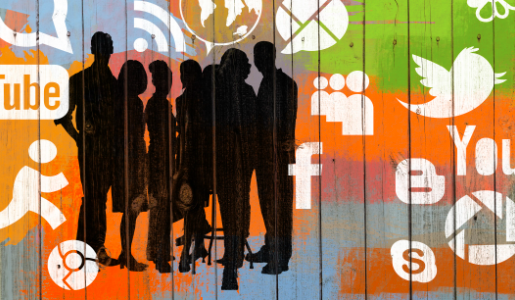|
Getting your Trinity Audio player ready...
|
Youth identity, shaped by social media, undergoes a dynamic process, weaving individuality and digital connection into a unique narrative.
Are you curious about who your kids really are today? Are they connected to their families or friends through social media? How does that affect them emotionally? And most importantly, is it safe? Social media has become such a massive part of our lives. The average person spends over 4 hours per day using some form of social media. This means your children likely spend much of their time on these sites, too. Comparing the amount of time your child spends online with other activities can help you identify what’s important for him/her and how he/she interacts with others in real life. After all, socials play a major part in today’s youth identity creation.

Challenges in Youth Identity Development
Young people between 13 and 18 years old face unique challenges due to rapid changes in technology. They don’t always know where their information comes from, why it matters, or what its implications might be. Parents and youth workers alike should provide guidance to ensure young people are aware of the risks associated with social media use. A balance needs to exist between encouraging self-expression and monitoring content that could potentially put someone at risk.
Understanding What It Is
The first step is understanding what social media actually is. There are many different forms of communication available now that allow teens to connect, share ideas, and express themselves. Most of us have Facebook accounts, Twitter, Instagram, Snapchat, and more. Each one offers something different and allows users to interact in ways we didn’t even think were possible before. However, there’s also a dark side to those platforms that some people aren’t aware of. For example, cyberbullying and sexting (texting and emailing inappropriate pictures) are common occurrences on social media. These types of interactions can lead to depression, anxiety, relationship problems, and so forth. Teens often don’t realize all the harmful effects of social media because they aren’t exposed to any negative consequences. They may not understand how their words or actions could be taken out of context and used against them
Aiding Youth Identity Development
Much like how adults often develop unhealthy addictions to things like chainsmoking or online casino gambling, youth also stand to develop unhealthy relationships and attachments to their ‘social media selves’ . While I believe this is largely avoidable, parents must be vigilant in helping youth learn to monitor the images posted to their profiles and the comments left by their peers. It’s easy for kids to get caught up in the excitement of posting photos or creating status updates when they’re bored or excited. But once they gain an audience, it’s difficult for them to control the kind of messages they receive from friends and strangers alike.
Generational Shifts
While it’s true that teens may have more freedom than previous generations, they still need parental guidance. Kids need to learn to distinguish between appropriate and inappropriate behavior and how peer pressure works. As youth grow older, they will begin to make decisions based on what they want rather than doing what’s expected. In fact, studies show that college students spend less time studying and more time playing video games. This trend has continued as high schoolers start to enter college. Teenagers are becoming increasingly independent, as well as less willing to conform to adult standards. That being said, parents are still responsible for teaching their children proper values and morals. And, parents need to help teens navigate through situations they find uncomfortable or confusing by offering reassurance and support.
Here are some questions to ask yourself:
1. What is my child’s relationship with his family like?
2. Does she have any close friends? Can I see her face-to-face?
3. Is there anyone else she talks to regularly on social media?
4. What about cyberbullying – do we know if he/she is being bullied? If so, what’s going on?
5. Who is teaching my child about boundaries and safety online? Is this something he/she understands and values? Do you feel comfortable talking to your child about these issues? How much information should you give him/her?
6. Are our family rules clear about using social media and internet access? How strict are they?
The Bottom Line
Social media has become a powerful tool for connecting with others, expressing oneself, sharing experiences, and learning about new topics. In youth identity development, however, it’s important to recognize that technology isn’t always positive. Parents must be diligent about monitoring their children’s use of social media and providing guidance where needed. The goal is to teach young people how to develop healthy social media habits while ensuring they maintain a strong sense of self and confidence in who they are.




